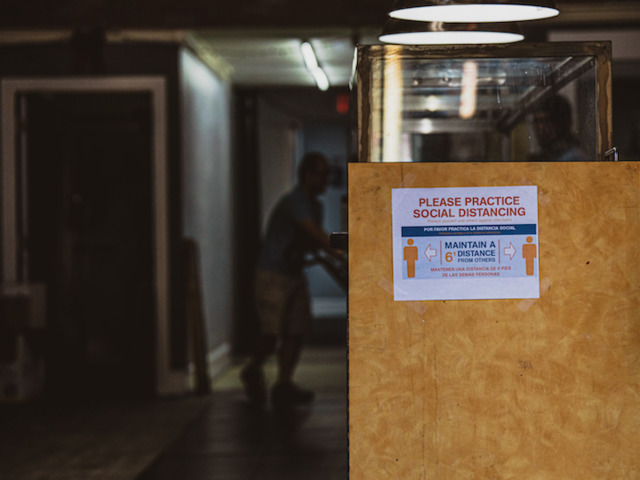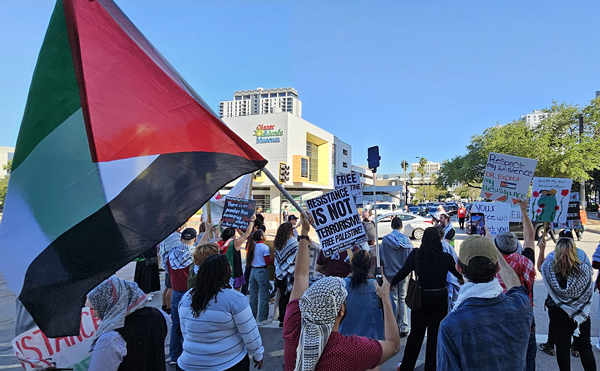Gov. Ron DeSantis says Florida will prohibit local governments from shutting down or placing additional hurdles on restaurants as the state prepares to move forward with the reopening process.
DeSantis told reporters Thursday that the Department of Business and Professional Regulation has the authority to prevent cities and counties from shuttering businesses.
“We license the restaurants, so it’s a DBPR thing,” the Governor said. “We believe that we would be able to ensure, based on our licensure ability, their ability to operate.”
Restaurants “need certainty” and “we can’t have these businesses dying,” he added, also noting that Florida is “the most open large state in the country by far.”
Under current DBPR measures, interior dining rooms or restaurants can open at 50% capacity while outdoor seating is also available. However, those limits could be changing.
The choice to preempt local governments will be more precautionary, the Governor indicated when he didn’t believe local governments would be rolling back reopening measures.
“We work great with locals, we understand different problems and we’ve given them a lot of latitude to do things that I personally wouldn’t have done, but I think that that’s the way to do it, bottom up,” DeSantis said. “At the same time, I think everyone in Florida has the right to work. Everyone in Florida has the right to operate a business. Now there can be reasonable regulations on that at the local level, but to say no at this point from the local perspective, I don’t think that that’s viable.”
Instead, he pointed to the concern for certainty among business owners and patrons.
“There’s also just this uncertainty about, OK what may come down the corner, because it isn’t like these restrictions are in front of the Legislature or local legislative bodies,” the Governor said. “A lot of them are unilateral decisions that are made that can be made at the drop of the hat, so I think we just need to let people know from that perspective that you’re going to be able to operate, you’re going to be able to do it, and what I think that you’ve seen is a lot of these restaurants are doing things that aren’t required of them.”
Additionally, he said preemptive local governments was evidence-based.
Places that have stacked additional regulations on top of state limits haven’t seen much difference in outbreaks compared to places that remained open. The Governor pointed to Broward County versus Miami-Dade County, which he said closed restaurants “at the height when everyone was really panicking.”
And he challenged reporters to show a difference in the epidemic curves in the two counties.
“I don’t think that the closure of restaurants has proven to be effective,” DeSantis said. “I get how you could potentially have spread there. … But we can’t have these businesses dying. So, they’re not going to be able to be closed by locals anymore. And they will be able to operate at the capacity that they’re comfortable with.”
DeSantis said he isn’t declaring the pandemic over but added that society needs to function as COVID-19 remains a challenge.
The Governor also said many restaurants are engaging in health measures “above and beyond” what they’re required to do, while hospitalizations from the virus are down.
The state this month allowed bars to again start serving drinks for on-site consumption, after Department of Business and Professional Regulation Secretary Halsey Beshears effectively closed them in late June because of widespread non-compliance with social distancing rules.
A number of bars and breweries were able to get around the prohibition by acting as restaurants, with some putting out menus with quick items such as hot dogs, cold sandwiches and even Hot Pockets.
The state Department of Health on Thursday reported 2,541 new cases, with the largest increase in cases among people ages 15 to 24. For September, the state has averaged fewer than 3,000 new cases a day. The state posted an average of more than 10,000 a day in July.
The department on Thursday also reported 177 additional deaths, bringing the number of Floridians killed by the virus to 13,795 since March.
The state has averaged 102 new deaths a day the past seven days, down from 112 a day in the prior week.
This article first appeared at Florida Politics.
Support local journalism in these crazy days. Our small but mighty team is working tirelessly to bring you up to the minute news on how Coronavirus is affecting Tampa and surrounding areas. Please consider making a one time or monthly donation to help support our staff. Every little bit helps.
Follow @cl_tampabay on Twitter to get the most up-to-date news + views. Subscribe to our newsletter, too.



















